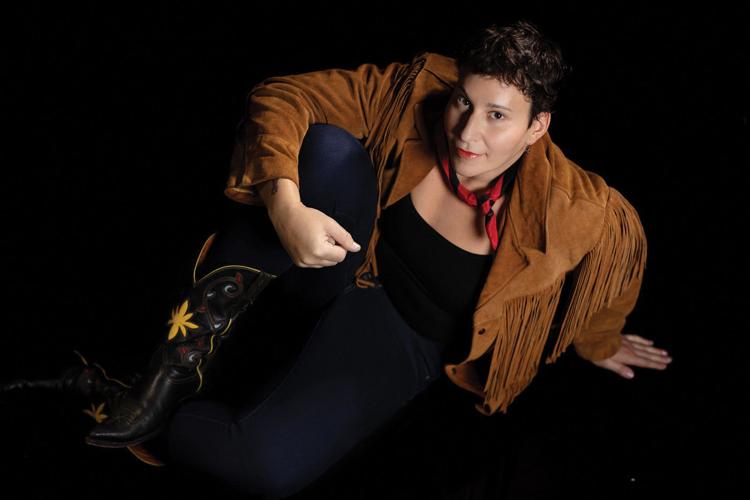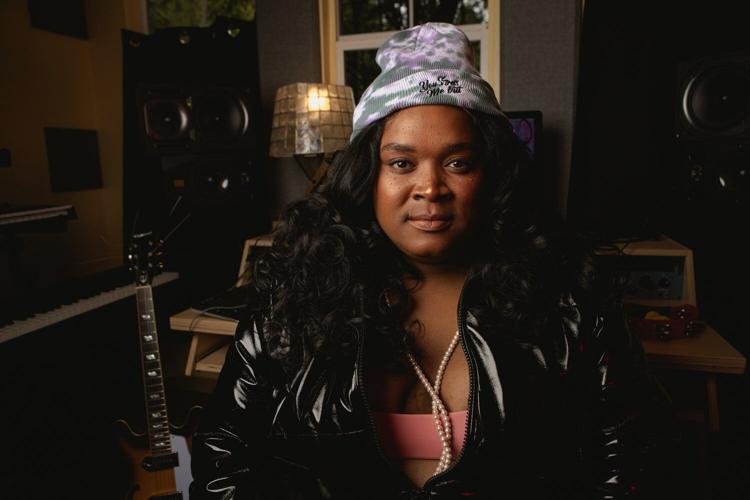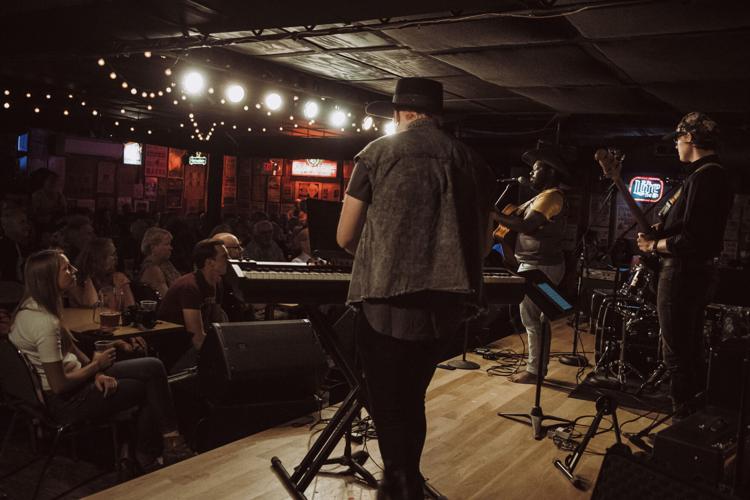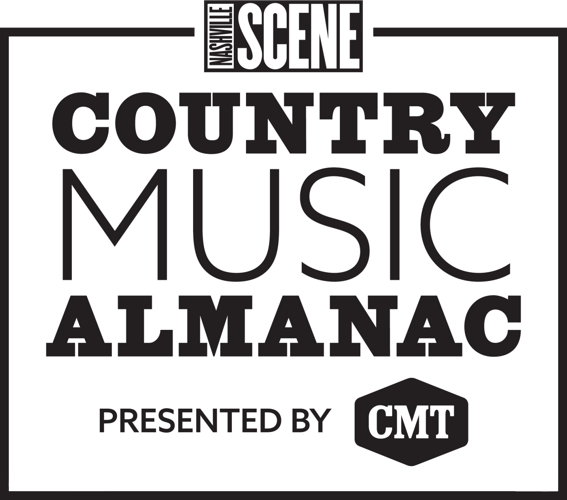
Mya Byrne
In August, country music reentered the culture wars. Brittany Aldean, wife of country star Jason Aldean, wrote an Instagram post that mimicked the popular alt-right account Libs of TikTok’s talking points about trans children. Cassadee Pope and Maren Morris publicly condemned the post, which led to pointed personal attacks. The media framed the exchange as a country music feud, rather than a concerning infringement upon trans people’s rights.
Trans people themselves were not centered at any point during this heated period. Yet trans artists have been part of the genre in one way or another for many decades, and found meaning in it for many more — and country and Americana music have been integral to the trans rights movement.
In spite of the unpleasantness, 2022 was also a banner year for trans and nonbinary artists. Mya Byrne signed to the legendary indie-rock label Kill Rock Stars and will release the first album on their new Nashville-based imprint later this spring. She is the first openly trans artist to be featured in Rolling Stone Country and to be played on WSM. Adeem the Artist, who is nonbinary, garnered critical acclaim for their crowdfunded album White Trash Revelry. Right at the end of 2021, Lafemmebear’s remix of Reba’s hit “I’m a Survivor” — part of the triple-album set Revived, Remixed, Revisited that came in at No. 8 on Billboard’s Top Album Sales chart — marked the first time a Black trans woman producer’s work earned a spot in the top 10 places on the chart, playing a role in shaping the environment for artists over the year.
Trans Rights and Country Music
“Trans people have added a lot to the culture, and we don’t get the credit that we’re due,” explains Sawyer, one of the organizers for punk artist collective Brooklyn Transcore. “People act like we’re just starting to get included. But the truth is we’ve always been around.”
Sawyer, who fronts the hardcore all-trans band The Dilators, observes that the trans rights movement can trace ties to folk and country music. In 1991, staff at Michigan Womyn’s Music Festival — a long-standing artistic and political touchpoint for the feminist movement that frequently booked folk and Americana legends like the Indigo Girls and Tracy Chapman — asked Nancy Jean Burkholder, a trans woman, to leave the grounds. The conflict that ensued led to the creation of a parallel annual gathering near the festival called Camp Trans. Our current understanding of trans identity as a liberatory experience rather than a medical pathology was furthered to a great extent at Camp Trans.
Modern music and the modern trans rights movement owe a deep debt to each other, and the music industry needs to pay their share. Some members of the mainstream country industry agree.
“Diversity is imperative to the future of country music,” says Leslie Fram, senior vice president of music and talent at CMT. “Our format is in danger of erasing voices that are sharing completely unique perspectives, experiences and sides of the story not being told. It’s essential we work to level the playing field and ensure all voices are being heard.”
More Support Needed
For D’orjay the Singing Shaman, a singer-songwriter from Edmonton, Alberta, going against the grain is a key component of country music narratives.
“Being at the intersection of Black and queer, and practicing ethical nonmonogamy — it’s a lot that just goes against convention in country and Americana,” they say. “But being an outlier in that way still leans into the outlaw vibe.”
Yet they find that constant microaggressions such as being misgendered are exhausting.
“At the end of the day, we want to be seen for the people we are,” observes Marshall Biever, a guitarist who moved to Nashville a year ago and has played in the weekly Queerfest series.
“One time, I met this guy at a showcase who was trying to do the whole bro-code thing and impress me,” Biever recalls, chuckling. “When I explained that’s not me, it’s like he couldn’t compute it. He didn’t know how to talk to me because he couldn’t interpret my gender. But I’m just a person.”

Ellen Angelico
Ellen Angelico, a longtime Nashville resident and the first openly nonbinary person to be nominated for an Americana Music Association award, faced barriers when she initially moved to town.
“Early on, I was definitely getting into situations where I was playing with people who weren’t OK with me being gay or me having a more masculine gender presentation,” says Angelico.
But things have changed, and she’s found that she’s been able to self-select projects with people who support her.
“I can tell, based on the gigs that I am getting, that I’m not in a lot of the bro-country conversations, because I have friends in those conversations and I know my name doesn’t come up, and that’s OK,” she says. “Instead I get to play with people like Cam, who absolutely knocks my socks off and loves me exactly the way I am.”
These everyday microaggressions coalesce into larger barriers. In the wake of her success with Reba, Lafemmebear has been approached by other artists in Nashville. However, she has walked away from projects because these artists are not offering as much money as she feels they would offer other artists, and they were not willing to offer publishing credits.
“I wanna see change,” she says. “I don’t give a fuck about equality. I want equity.”
Yet, Lafemmebear and Mya Byrne have seen firsthand that trans artists — and trans women in particular — are less likely to be invited to perform at festivals, including Pride festivals. And when they are, they say they’re paid less than cis artists.

Lafemmebear
Byrne notes that trans artists have a number of needs that the music industry must consider. Even something as seemingly mundane as publishing rights can become tangled when an artist changes their name. It’s not a simple task for performing rights organizations like BMI and ASCAP. But artists must produce documentation of a legal name change, and many cannot afford the expensive, lengthy and often traumatic process to obtain it. For those who have legally changed their names, reliving the process can be triggering.
There are other logistical concerns, too, that affect physical safety. Byrne is prepping a tour in support of her album later this spring. She has found that charting the route involves significant safety planning. In 2022, the Human Rights Campaign tracked at least 35 cases of U.S. trans people who were killed in violent incidents.
“I can’t just crash in a random motel,” she says. “I’ve done that, and it’s frightening. I’m a precious flower and I care about my life. I don’t want to become a statistic playing music on the road.”
In addition to practicalities, Byrne observes that one of the most important things the industry can do to protect trans women is to see them as women.
“It’s really important for trans women specifically to be included in any program that’s talking about accelerating the careers of women. Otherwise, we’re just women with asterisks.”
Fram points to CMT’s showcases for marginalized artists as one example of ensuring mainstream country music becomes more diverse. CMT also co-hosted the Country Pride showcase at CMA Fest, among the first official showcases for LGBTQ artists at any country festival. Says Fram, “Country music gatekeepers have the same opportunity and responsibility to break the cycle from only one type of artist getting signed to labels, publishing companies and support on radio and digital service providers.”
In other words, there’s no reason other major industry organizations can’t follow suit. That would seem to require a culture shift.
“The very popular trope that country and Americana is loving and welcoming is really dangerous to lean into,” says D’orjay.
“Any time there’s a culture that aligns itself or identifies itself with kindness or good Southern manners, it just takes change so much longer,” observes Purser, a singer-songwriter who grew up in Nashville, moved away and recently returned.
Artist-Driven Initiatives
Much of the forward momentum trans and nonbinary artists are feeling is generated by the community, not the industry. Queerfest in Nashville, the Durham, N.C.-based Country Soul Songbook and Jeremy Leroux’s online directory Country Everywhere are key resources for helping LGBTQ artists find each other.
Purser has found their musical and trans identities have grown in tandem. They were astounded to find a queer community in Nashville, which they say has grown in large part due to Sara Gougeon’s weekly Queerfest showcases. In a twist of fate, Gougeon chose to move to Nashville in part after seeing Angelico perform.
Holly G, the founder of the Black Opry collective, has been sharing resources with Boston-based singer-songwriter Jessye DeSilva to expand opportunities for trans and nonbinary artists. AmericanaFest, which touts its diversity relative to mainstream country music, featured only two openly nonbinary artists — River Shook of Sarah Shook and the Disarmers, and Adeem the Artist — and no trans artists for showcases in 2022. When Holly was offered the chance to book a showcase for the festival, she invited DeSilva and Angelico (who ended up being unavailable) to line up a backing band of all trans and nonbinary musicians for what became a standing-room-only event at the Station Inn.
“Advocacy and community building is part of how I think of my own music already,” says DeSilva.
As festival season approaches, Brooklyn Transcore and Mya Byrne are collaborating on Byrne’s tour. Brooklyn Transcore is also planning folk, punk and country tours through the Southeast and Midwest this summer. Byrne is eager to use her platform with Kill Rock Stars to support other trans artists.

The Black Opry Revue feat. Jett Holden during AmericanaFest at the Station Inn, 9/15/2022
“I want to make sure that we are using every resource we have at hand to clothe trans people, to put them on the road when we can, to give them the money they need to be supported, because so many of us don’t have any resources at all,” she says. “That’s what mutual aid is about.”
In spite of the political headwinds for trans people, 2023 promises to be a breakout year for trans and nonbinary artists in roots music. Angelico is encouraged by the children she works with at Fanny’s House of Music and a separate youth songwriting initiative she participates in through the Country Music Hall of Fame and Museum.
“As I move into more and more organized advocacy, I’m not working for the person I am now,” she says. “I want to make every space that I enter more hospitable to who I was 15 years ago, when I was still discovering myself.”
She won’t have to wait long to see if that work has paid off.
“Knowing that I am trans has made my art better and has made me a better person,” says Purser. “I invite anyone else who lives in Nashville to start exploring not only their own queerness, but the queer environment in this city. Because it is here, it is growing. I encourage people to come out however is safest for them, because it has absolutely changed my life and my experience in this city. It will change Nashville for you, and it will become a place that you can really, truly, deeply call home.”
We talk with Chapel Hart, discuss the intersection of trans rights and roots music, take a deep dive into data and more











